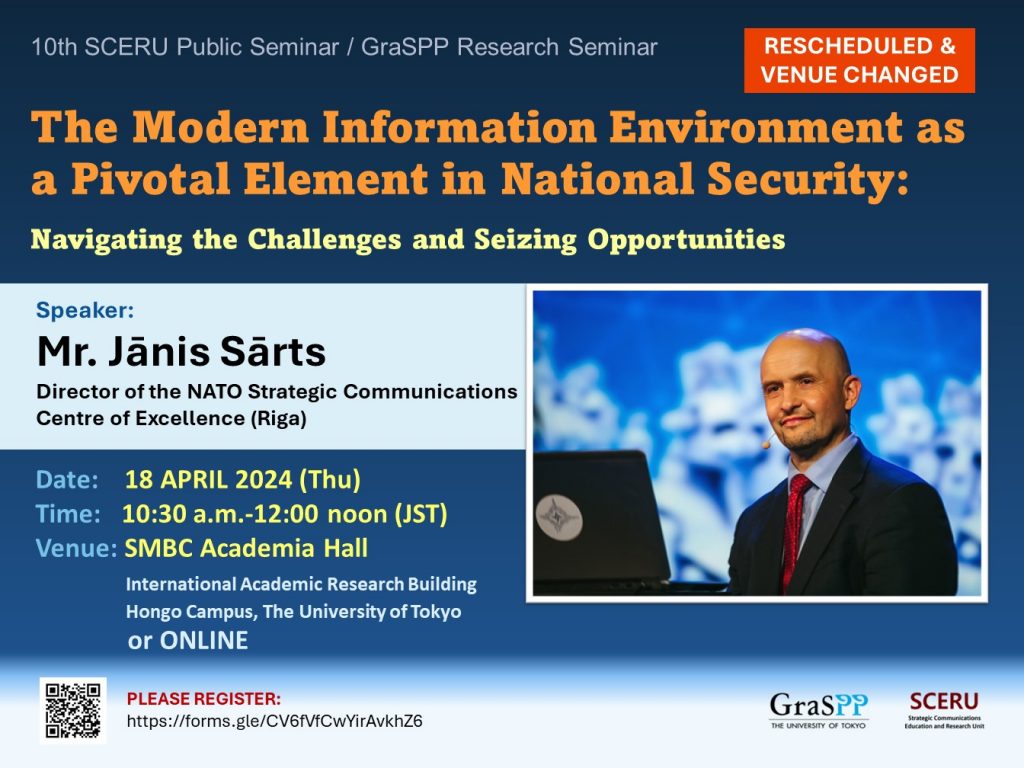
SCERU, alongside the Graduate School of Public Policy (GraSPP), will hold a public seminar titled “The Modern Information Environment as a Pivotal Element in National Security: Navigating the Challenges and Seizing Opportunities” on Thursday 18 April 2024.
PLEASE NOTE: this event has been rescheduled to take place at a new venue as detailed below.
Synopsis:
Mr Sārts will look into the nature of a rapidly evolving information landscape. The digital age is transforming the information environment into an arena of geopolitical rivalry, cyber warfare, and ideological confrontation. Technological advancements, innovations in information dissemination and communication technologies present new potential vulnerabilities.
What is the transformative potential of big data analytics, artificial intelligence, and cyber capabilities in forecasting threats and enhancing the efficacy of decision-making processes? How does it all reflect on our perceptions, states of mind, and decision making in both everyday life and society?
This session will be moderated by: Dr. Chiyuki Aoi, Professor and Director, SCERU.
Date & Time:
Thursday 18 April 2024
10:30 AM – 12:00 NOON (JST), 2:30 AM – 4:00 AM (BST), 3:30 AM – 5:00 AM (CEST)
Registration:
This seminar will be held both onsite and online..
Please register your participation here.
(Please choose ONSITE or ONLINE for your participation)
Onsite Venue:
SMBC Academia Hall
4th floor, International Academic Research Building, Hongo campus, the University of Tokyo
Language:
English
About the Speaker:
Mr Jānis Sārts is a Director of the NATO Strategic Communications Centre of Excellence (Riga), – a multinational, cross-sector organisation providing comprehensive analysis, advice and practical support in strategic communications to the Alliance and the allied nations. Prior to that, he was State Secretary of the Ministry of Defence, Latvia for seven years leading defence sector reforms during an economic crisis period, developing a new state defence concept, and encouraging regional defence cooperation within NATO and the EU. He has also led the Latvian government’s efforts to increase its security and defence in cyberspace. As Chair of the National Cyber Security Board, he was responsible for formulating and overseeing the implementation of Latvia’s cyber security policy, as well as for overseeing the work of the National Information Technology Security Incident Response Institution – CERT.LV.



